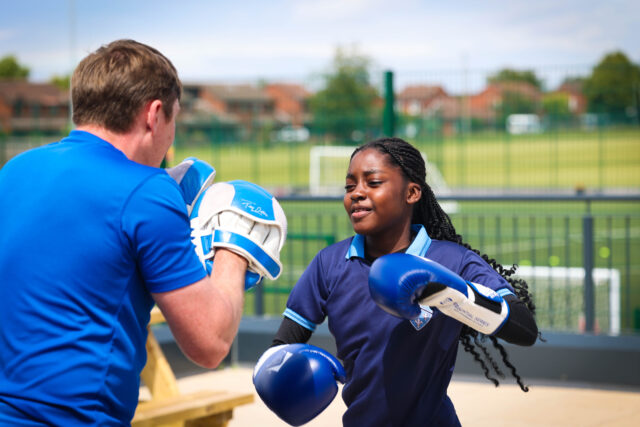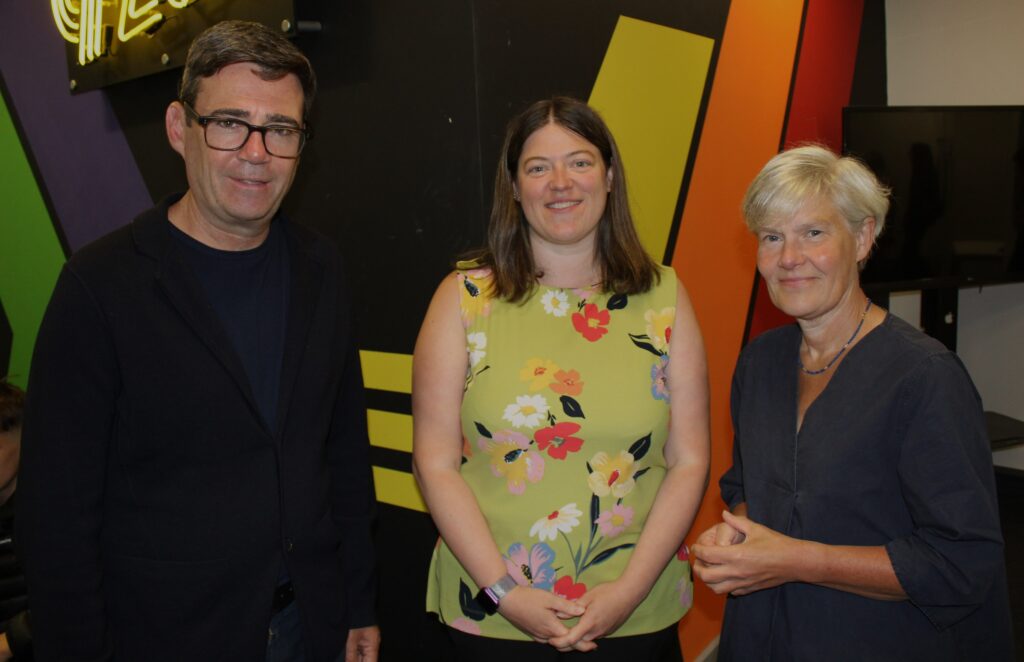Preventing Offending
We are focused on preventing people, particularly those who are young and vulnerable, from ever getting drawn into crime, while also working to reduce reoffending.
According to Government statistics, the likelihood of an individual reoffending fluctuates between 23.1% and 31.8%.
We are committed to reducing that number by supporting young people and those who are inclined to offend again through targeted programmes and support.
We focus our work with young people who are subject to license or community sentences, working with our partners in probation, Merseyside’s five local authorities, health and other services.
We encourage positive voluntary engagement from the people who use local authority, health and other services. Our key areas are families, substance misuse, housing, finance, mentoring and mental health.
To make sure our programmes bring about sustainable changes, we have formed strong partnerships with the Youth Offending and Probation services and the Department for Work and Pensions (DWP).
Our work with the Department of Work and Pensions (DWP)
Merseyside was the first Violence Reduction Unit in the country to have a member of Department of Work and Pensions (DWP) staff seconded into the team.
This move has reaped significant results and has been particularly beneficial for young people who are long-term unemployed or who may have been in custody.
The co-location has also resulted in greater collaboration and the co-commissioning of projects and programmes, including some of these highlighted below.
We are constantly reviewing the progress and success of our projects to learn more about reoffending, risk management and progress, including through pre and post interviews. Visit our Resources page
Current programmes

Operating in Merseyside’s three busiest A&E departments, this pioneering project sees specially trained youth workers team up with hospital staff to identify young people affected by serious violence and put plans in place to help them to cope and recover and assist with access to local support networks to prevent the potential of further violence.
Find out more about our Navigators programme

Created by medics, this programme offers trauma-informed training to young people in disadvantaged areas, which empowers them to become part of the solution to violence through emergency first aid training and increasing their understanding of the medical and psychological consequences of violence.
This national project has recently been enhanced through a new App, launched jointly in Merseyside and Greater Manchester.
This e-learning app, ‘StreetDrs Save Lives,’ is a fully interactive and trauma-informed course that provides innovative digital training for young people affected by violence across the UK.
To find out more about StreetDoctors, visit StreetDoctors – Empowering young lifesavers
We have been working with The Brain Charity and others, to measure the impact of neurodiverse conditions on the Criminal Justice System and examine how better understanding could increase the support for those with neurodiverse needs and help to prevent reoffending.
As a result this research Another Sign – Neurodiversity in the Criminal Justice System, the MVRP commissioned the Brain Charity to deliver training for staff working in the Criminal Justice System and look to take forward the other recommendations detailed in their report.
Having a loved one in prison is traumatic for children and can often result in stigma.
Time to Thrive is an early intervention scheme delivered by Time Matters UK which provides peer support groups and one-to-one mentoring for children, aged five to 18 years old impacted by the imprisonment of a parent of family member.
Through this programme children access a wider variety of enrichment activities through our service which means during their school holidays they are well supported, learn new skills, engage in positive physical and mental health activities and wider learning opportunities.
Championed by the MVRP and developed in partnership with Merseyside Police and our region’s five Youth Justice Services (YJS’s), Operation Inclusion is a ‘deferred prosecution scheme’ which works with children and young people to give them a chance to change their behaviour.
Operation Inclusion focuses on young people aged between 10 and 17 who have been linked with drugs and / or violent crime. It aims to provide the YJS’s with an extra three to six months to work with the young people to put support in place and prevent their offending behaviour from continuing or escalating. The programme works with the young people and their family or carer, using diversion and support strategies based on that individual’s needs and can include:
- Parenting Support
- Mentoring
- Health & Wellbeing Support.
- Educational Services
- Referrals to wider services such as Early Help/Family Support
- StreetDoctors Reducing Violence Programme
- Programmes from other wider community support or services
The results, so far, are impressive. Between 1st January 2021 and 31st December 2022, 123 young people completed an Operation Inclusion intervention. Of those, only 7 young people have reoffended – meaning 116 have kept out of trouble.
Crucially, for those young people who engage effectively, Operation Inclusion enables a young person to leave YJS without a statutory criminal record, giving them a much brighter future.
In November 2022, Operation Inclusion received a Howard League Award recognising its success preventing offending and keeping young people out of the criminal justice system.